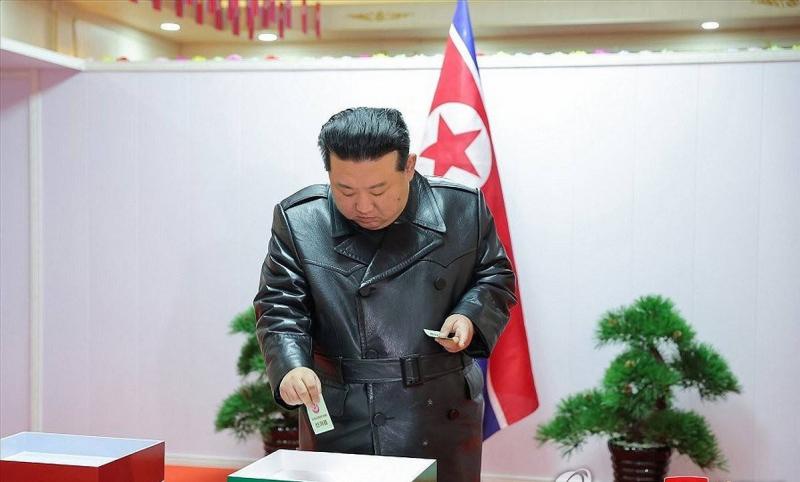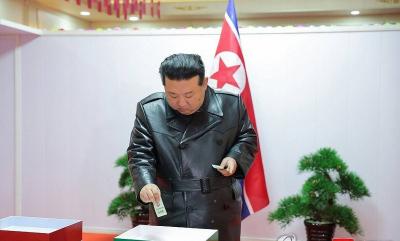North Korea spoke today, Tuesday, about rare opposition votes in the recent elections; however, analysts dismissed this as an attempt to portray a more normal society rather than an indication of any meaningful increase in rights within the authoritarian state. North Korea is considered one of the most controlled societies in the world, with leader Kim Jong-un accused of using a system based on favoritism and repression to maintain absolute power.
In its reports on the results of the local people's assembly elections held on Sunday, North Korean state media stated that 0.09% and 0.13% voted against the selected candidates for provincial and city councils, respectively. The Korean Central News Agency noted that "among the voters who participated in casting their votes, 99.91% voted for candidates for the position of deputies of regional people's assemblies, and 99.87% for candidates for deputies of municipal and district people's assemblies."
North Korea's parliament and local councils serve as a routine approval mechanism for the decisions of the ruling Workers' Party, with electoral participation typically recorded at over 99% of voters. A South Korean unification ministry official, responsible for relations with North Korea, stated that the elections held this month represent the first instance in which Pyongyang cited opposition votes in local elections since the 1960s.
The latest regional elections, which are held every four years, were also the first since North Korea amended its electoral laws in August to allow multiple candidates. The Asia Pacific Research Institute in Canada reported that "portraying a more democratic society, especially compared to South Korea and the United States, aims to enhance the legitimacy and credibility of the regime on the global stage."
An image published by state media showed Kim Jong-un casting his vote, standing in front of two boxes: one green for approval and the other red for opposition. Voter turnout slightly declined to 99.63% from 99.98% four years ago, a sign that analysts suggest may indicate a slight weakening of state control in a country where voting is considered mandatory.




